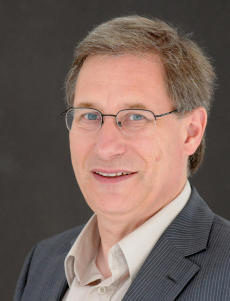Cluster of Excellence “Religion and Politics” makes it to the next stage
German Research Foundation (DFG) invites to submit full proposal of “Religion and Politics. Dynamics of Tradition and Innovation” – application for funding under the federal and state governments’ Excellence Strategy as of 2019 – Threefold success for the University of Münster

On 29 September 2017, the German Research Foundation (Deutsche Forschungsgemeinschaft, DFG) invited the Cluster of Excellence “Religion and Politics” to submit a full proposal for a new funding period starting in 2019. The speaker of the Cluster of Excellence, sociologist of religion Prof. Dr. Detlef Pollack, stated:
“We are pleased that, in the months ahead, we may elaborate the new research programme that we have developed in our draft proposal under the title ‘Religion and Politics. Dynamics of Tradition and Innovation’ (Religion und Politik. Dynamiken von Tradition und Innovation). At the beginning of the millennium, we are experiencing political and social upheavals all over the world in which religion plays a key role. Given the confusing situation, it is controversial what exactly its role is. It is all the more necessary to avoid simplifying cause definitions and to develop a reflexive distance. Only if we analyse the current conflicts from a historically sharpened and interdisciplinarily open perspective will we, as scientists, be able to provide societally relevant orientation knowledge. In a competition, we have already selected project ideas from seven faculties of WWU, which implement the planned research fields and questions and make them empirically concrete.
The aim is to make Münster the most distinguished centre of interdisciplinary religious research in Germany. The Cluster of Excellence has already created permanent structures to strengthen religious research at WWU: new professorships focusing on religion and politics have emerged, for example in political science, sociology, Jewish studies and Islamic studies, and so have new centres such as the Center for Religion and Modernity (Centrum für Religion und Moderne – CRM) and the Centre for Islamic Theology (Zentrum für Islamische Theologie – ZIT). The' Campus of Religions' will be added in the next years, which will bring together old and new institutional structures. The Campus is intended to strengthen both interdisciplinary cooperation and interreligious understanding. We will thus exceed the field of purely academic work: the dialogue with politics, religions and the public sphere through intensive research communication will remain an important aspect of our endeavour also in future.”
Three of the four draft proposals of WWU
On the whole, the German Research Foundation (Deutsche Forschungsgemeinschaft, DFG) has assessed three of the four draft proposals submitted by WWU for Clusters of Excellence as being promising. The committee has called on each of the research teams to submit detailed applications for funding by 21 February 2018. The final decision will be made in September next year. “This is a very pleasing result”, says Rector Prof. Johannes Wessels, “and it is an excellent basis for progressing the University’s strategic orientation with regard to its research activities. With their drafts, the departments involved in the applications are in a very good position for a successful conclusion.” In addition to “Religion and Politics”, the German Research Foundation also asked WWU to elaborate the following draft proposals to full proposals: Cells-in-Motion Cluster of Excellence. Multiscale Imaging to Understand Dynamic Cell Behaviour in Organisms (CiM), Mathematics Münster. Dynamics – Geometry – Structure (Cluster of Excellence). (vvm)
Further information

